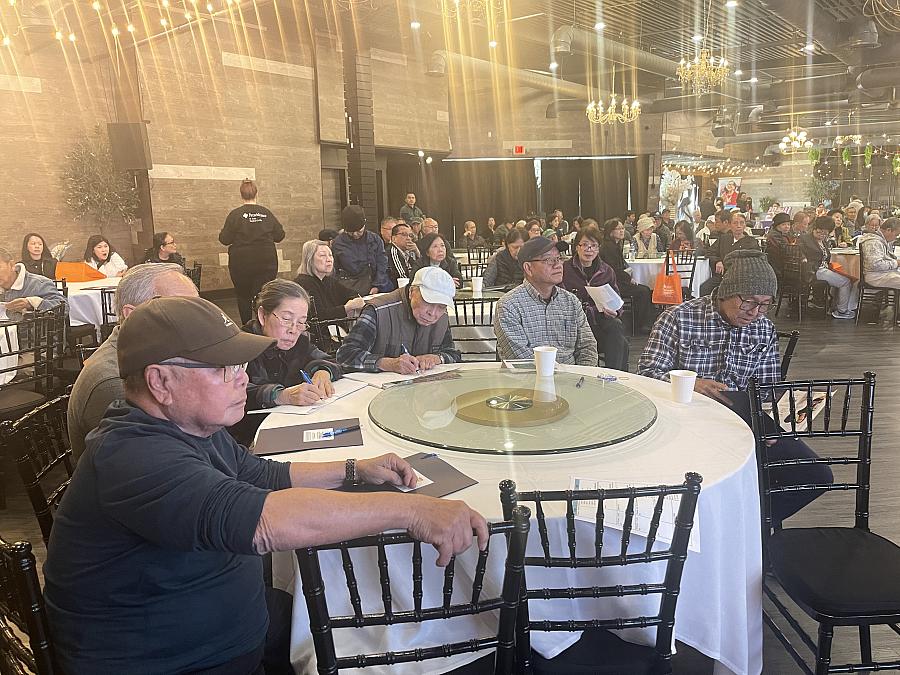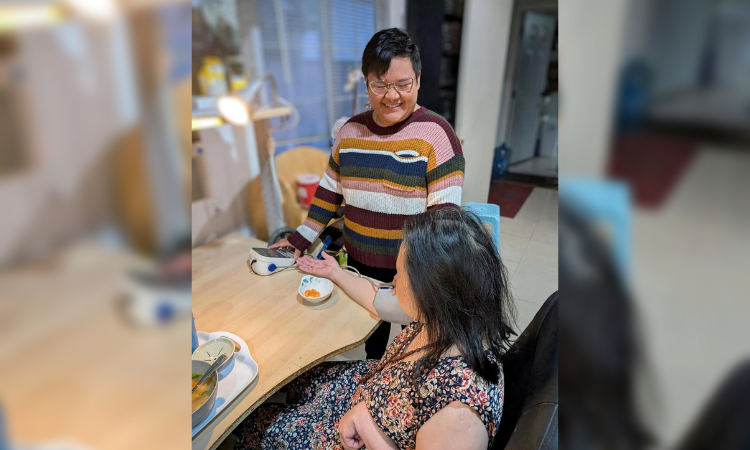Thanh Nguyen, a resident of Garden Grove in Orange County, has cared for her bedridden mother for almost 30 years. Her mother has suffered from multiple sclerosis (MS) since Thanh was 19.
"Juggling school, caring for my mother, my younger sibling, and my aging grandmother was incredibly stressful. I was constantly overwhelmed and exhausted," Nguyen said.
Nguyen's story is not unique. A recent project by the University of Southern California (USC) Annenberg Center for Health Journalism's California Fellowship revealed that many Vietnamese Americans in California face similar psychological burdens. They are caught between cultural expectations of filial piety and the demanding reality of providing constant care for ailing family members.
 |
Vietnamese American caregivers attend a workshop on resources and support in Orange County. Photo: USC |
Vietnamese American caregivers attend a workshop on resources and support in Orange County. Photo: USC
Data from the 2020 California Health Interview Survey (CHIS) conducted by the University of California, Los Angeles (UCLA), highlights the financial instability and declining physical and mental health faced by family caregivers statewide.
This burden is especially heavy for Vietnamese American families. The CHIS study revealed that older Vietnamese Americans reported significantly poorer health outcomes in five out of eight categories compared to older white adults. Furthermore, their caregivers often hesitate to seek help or acknowledge their exhaustion.
This creates an "invisible epidemic" among caregivers, who receive little formal support.
Nguyen's family initially hoped she would become a doctor. However, the daily trauma of administering steroid injections to her mother led to psychological distress, and she abandoned her medical aspirations. "I had suicidal thoughts, but then I realized that if I died, my family wouldn't know what to do," Nguyen recounted.
Thuy Vu, a 31-year-old former English teacher in Santa Ana, Orange County, also struggles to balance work and caring for her mother, a responsibility she has shouldered for 11 years.
Vu's life changed dramatically in early 2014 when her mother suffered a stroke. Her father left in 2018, and she hasn't spoken to him since.
Initially, Vu's older brother helped with their mother's care. However, after he moved out, she became the primary caregiver.
 |
Thuy Vu helps her mother check her blood pressure at their home in Santa Ana, Orange County, California. Photo: USC |
Thuy Vu helps her mother check her blood pressure at their home in Santa Ana, Orange County, California. Photo: USC
"Immediately after my mother's stroke, I was juggling college, a part-time job, and preparing her meals because of her dietary restrictions," Vu explained. "I was overwhelmed and exhausted, but I kept it to myself, thinking I could handle it alone. I didn't want to burden anyone."
According to the CHIS, nearly 14% of family caregivers in California experienced physical or mental health issues in the past 12 months, with almost 50% stemming from financial pressures.
Social workers are particularly concerned about families who don't qualify for Medi-Cal, California's health insurance program for low-income residents. They encourage Vietnamese Americans to be more open to receiving psychological support.
Nguyen's husband now shares the caregiving responsibilities, allowing her time for herself and her work. She connects with friends and takes short trips to other states to recharge before returning to her filial duties.
"I want people to open up and seek help from family members, like siblings or relatives, to lessen the burden and avoid becoming overwhelmed like I was," Nguyen advised.
After struggling for a long time, Vu also sought professional help. She now sees a therapist, who has helped her navigate this challenging period.
"It's not just the caregivers; patients also need to be more open," Vu shared. "My mother used to avoid social gatherings because of her illness. But since she started participating in social activities, her mental health has improved."
Duc Trung (Center for Health Journalism)












